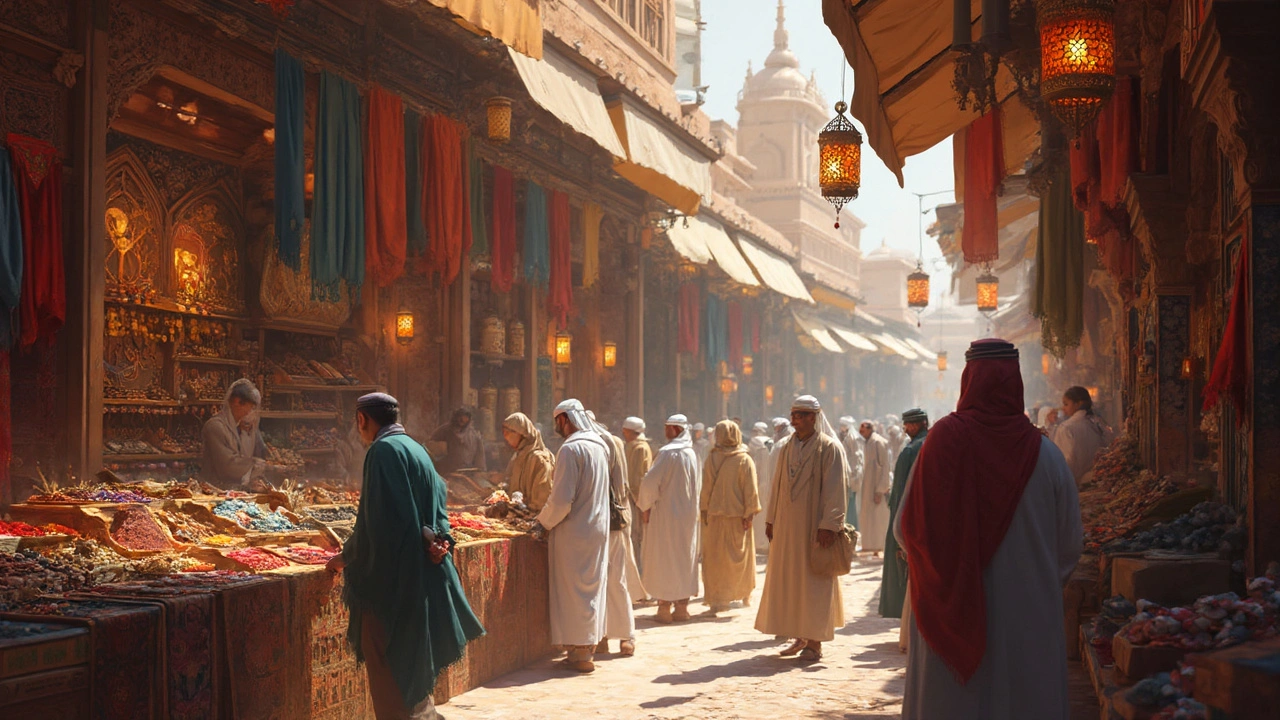Dubai Traditions: A Practical Guide to Emirati Culture
Dubai may look like a futuristic skyline, but its heart beats with age‑old traditions that still shape daily life. From the call to prayer echoing through the desert to the warm hospitality at a family gathering, these customs are easy to spot if you know what to look for.
When you meet a local, a simple “As‑salām ‘alaykum” (peace be upon you) goes a long way. Most Emiratis respond with “Wa ‘alaykum as‑salām” and often add a friendly handshake or a light, respectful cheek kiss if they’re close. Mimicking this greeting shows respect and opens doors.
Traditional dress is more than fashion; it reflects pride. Men wear a white kandura and a head‑covering ghutra, while women often choose an elegant abaya over modern clothes. In public places you’ll see tourists mixing styles, but covering shoulders and knees keeps you comfortable and accepted.
Ramadan is the most visible tradition in Dubai. During daylight, restaurants close, streets quiet, and families gather for iftar at sunset. If you’re out for a meal, plan ahead—many hotels offer private dining rooms, and you’ll hear the city come alive with the sound of dates being broken.
A cup of Arabic coffee (gahwa) paired with fresh dates is a daily ritual. Hosts pour coffee from a dallah into tiny cups, often turning the cup upside down after the guest finishes. Accepting this gesture, even if you sip slowly, signals appreciation for local hospitality.
The Majlis is a community lounge where locals discuss news, negotiate deals, or simply catch up over tea. Visiting a family’s Majlis means sitting low, listening attentively, and avoiding sudden movements. It’s a great chance to hear stories about the city’s past.
Traditional sports like camel racing and falconry still draw crowds. Races take place at Al Maktoum Stadium on weekends, and you’ll find falconry shows in heritage villages. Buying a small souvenir, like a miniature camel, supports local artisans and helps you remember the experience.
The gold and spice souks are living museums of trade customs. Haggling is expected; start low, smile, and increase offers gradually. Vendors respect polite persistence, and you’ll often walk away with a better price than you imagined.
Everyday Customs You’ll Meet
Beyond festivals, everyday life follows subtle rules. Never point the soles of your shoes at a person, as it’s considered disrespectful. When entering a home, remove shoes at the door. These small gestures help you blend in without drawing unwanted attention.
Must‑Try Traditional Experiences
Set aside a day for a heritage tour. Visit Al Fahidi Fort, ride an abra across Dubai Creek, and end the afternoon with a traditional shawarma stand that serves meat cooked over open fire. Each step gives you a taste of the city’s roots.
Exploring Dubai traditions doesn’t require a guidebook full of rules—just curiosity and a willingness to respect locals. By matching your actions to these simple customs, you’ll find the city’s hospitality opens up, revealing a side of Dubai that most tourists miss.
The Power of Cultural Experiences in Dubai: Building Bridges Across Borders
Exploring cultural experiences in Dubai is like embarking on a vibrant journey across the world without leaving the city. From the bustling souks and historic Al Fahidi Neighborhood to the multicultural events at Dubai Opera, there's no shortage of opportunities to connect with diverse cultures. Whether you're a local, expat, or tourist eager to dive into the rich tapestry of traditions, Dubai offers something unique for everyone. Discover how cultural exchanges foster understanding and connections in this thriving metropolis.

